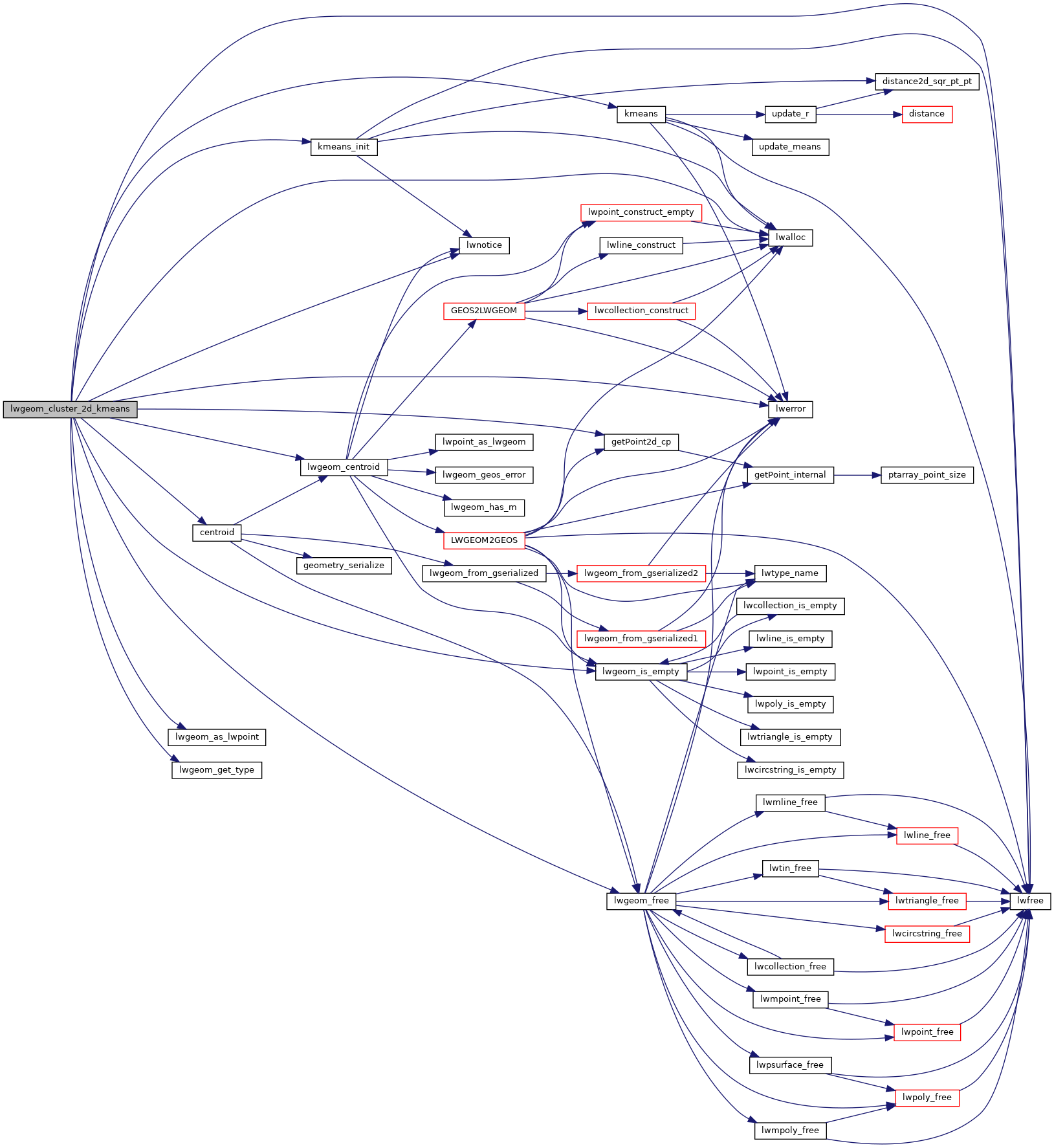◆ lwgeom_cluster_2d_kmeans()
| int* lwgeom_cluster_2d_kmeans | ( | const LWGEOM ** | geoms, |
| uint32_t | ngeoms, | ||
| uint32_t | k | ||
| ) |
Take a list of LWGEOMs and a number of clusters and return an integer array indicating which cluster each geometry is in.
- Parameters
-
geoms the input array of LWGEOM pointers ngeoms the number of elements in the array k the number of clusters to calculate
Definition at line 244 of file lwkmeans.c.
270 lwerror("%s: number of geometries is less than the number of clusters requested, not all clusters will get data", __func__);
278 /* The vector of cluster means. We have to allocate a chunk of memory for these because we'll be mutating them
327 lwnotice("%s: number of non-empty geometries is less than the number of clusters requested, not all clusters will get data", __func__);
static const POINT2D * getPoint2d_cp(const POINTARRAY *pa, uint32_t n)
Returns a POINT2D pointer into the POINTARRAY serialized_ptlist, suitable for reading from.
Definition: lwinline.h:91
static int lwgeom_is_empty(const LWGEOM *geom)
Return true or false depending on whether a geometry is an "empty" geometry (no vertices members)
Definition: lwinline.h:193
static void kmeans_init(POINT2D **objs, uint32_t n, POINT2D **centers, POINT2D *centers_raw, uint32_t k)
Definition: lwkmeans.c:129
static int kmeans(POINT2D **objs, int *clusters, uint32_t n, POINT2D **centers, uint32_t k)
Definition: lwkmeans.c:94
Definition: liblwgeom.h:443
Definition: liblwgeom.h:455
Definition: liblwgeom.h:375
References centroid(), getPoint2d_cp(), kmeans(), kmeans_init(), KMEANS_NULL_CLUSTER, LW_FALSE, LW_TRUE, lwalloc(), lwerror(), lwfree(), lwgeom_as_lwpoint(), lwgeom_centroid(), lwgeom_free(), lwgeom_get_type(), lwgeom_is_empty(), lwnotice(), LWPOINT::point, and POINTTYPE.
Referenced by ST_ClusterKMeans(), and test_kmeans().
Here is the call graph for this function:

Here is the caller graph for this function:
